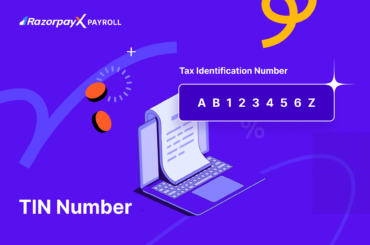Gratuity constitutes a small part of employee compensation. In this article, we’ll detail everything about gratuity—its meaning, eligibility criteria, calculation formulas, and taxation rules.
If you already know about gratuity and want to simply calculate it, use our free online Gratuity Calculator here. All you need to do is put in your monthly salary and years of service and we’ll calculate gratuity for you!
Table of Contents
What is gratuity?
Gratuity is the amount employees receive as a part of their gross compensation from their employer. It’s regulated under the Payment of Gratuity Act, 1972, and is offered as a token of appreciation for an employee’s services to the company.
The law applies to employees of factories, mines, oilfields, plantations, ports, railway companies, shops or other establishments with 10 or more employees. All kinds of government jobs are also covered under this act. It extends to all states of India except Jammu and Kashmir.
To be eligible for gratuity, an employee should have completed at least 4 years 8 months of employment in the company. However, this condition isn’t applicable in the case of employee disability or death due to an accident or severe illness.
Related Read: What Is an Ex-Gratia Payment?
Eligibility criteria for gratuity payment in India
Employees must fulfil the following criteria to be eligible for receiving the gratuity payment:
- On superannuation i.e. when an employee attains a pre-fixed age defined in a company’s superannuation plan. A superannuation plan is a company’s pension plan for its employees.
- If they are retiring from work or resigning after completing 4 years 8 months years of uninterrupted employment.
- If they are disabled due to an accident or sickness, in which case the minimum employment period (4 years 8 months) becomes irrelevant.
- If an employee dies due to serious illness, the minimum employment period condition isn’t applicable again. In this case, the nominee becomes the recipient of gratuity.
Gratuity calculator
Employers can use a simple formula to determine the gratuity amount to be paid to the employees.
Gratuity calculation formula
For employees under the purview of the Gratuity Act, the formula used for calculating the gratuity amount is as follows:
Gratuity = (Years of service x Last drawn basic salary) 15/ 26
where the last drawn salary includes basic salary and dearness allowance.
Example: If Deepika has served for 15 years in a company and her last drawn salary (including basic salary and dearness allowance) was Rs. 25000, then:
Gratuity amount for Deepika = (15 x 25,000) 15/ 26 = Rs. 2,16,346.154
Some important points to be noted:
- If the number of months in the last year of service is more than six months, it is rounded up to the nearest integer. Otherwise, it is rounded down to the nearest integer. For example, 20 years 7 months tenure is treated as 21 years, while 20 years 5 months is treated as 20 years.
- As per the Gratuity Act, if the gratuity amount exceeds the limit of Rs. 20 lakh, then the surplus amount is treated as ex-gratia. Ex-gratia payments are voluntary payments made by an organisation as a favour or incentive to employees and do not fall under any law obligation.
- As per the Act, an employer can forfeit the gratuity payment, partially or wholly, in case of any misconduct or act of violence by an employee.
Calculation of gratuity in case of death of an employee
In case of an unfortunate event like the death of an employee, the gratuity payment is calculated based on the employee’s service tenure. Here again, there is a capping limit of Rs. 20 lakh. Refer to the table below to calculate gratuity:
| Service Tenure | Gratuity Amount Payable |
| Less than a year | 2 x basic salary |
| 1 year or more but less than 5 years | 6 x basic salary |
| 5 years or more but less than 11 years | 12 x basic salary |
| 11 years or more but less than 20 years | 20 x basic salary |
| 20 years or more | 1/2 of the basic salary for each completed six-monthly period. (It is subject to a maximum of 33 x basic salary.) |
Income tax on gratuity
The taxation rules around gratuity amount primarily depend on whether an employee is employed with a government or a private entity.
- For (central/ state/ local) government employees, the entire gratuity amount is exempted from income tax.
- For private employees, the least of the following three amounts is exempted from income tax:
a) The eligible gratuity
b) The actual amount of gratuity received
c) Rs. 20 lakh
How to calculate the gratuity amount?
Calculating gratuity amount manually can be tedious and error-prone. Things only get worse when a business scales and there is a huge list of employees with different basic pays, allowances, and commissions. It’s like running in a marathon with bare feet and hoping to win. Just like athletes need shoes, smart businesses require automated tools for tasks such as gratuity calculation and employee payroll. This helps them to stay ahead of the curve, save precious time, and scale effortlessly.
RazorpayX Payroll has an inherent feature that uses the gratuity formula to calculate the amount as part of its payroll processing system. This can make life easier for you when calculating it for different employees. The exact gratuity amount will be captured in the payroll in a matter of clicks, after providing the following inputs:
- Select whether or not you are covered under the Gratuity Act
- Input the basic salary, dearness allowance, and commissions, whichever is applicable
- Input the number of years of service
And voila! Your payroll processing is completed, and along with it, the gratuity amount calculation is also done.
With RazorpayX Payroll, you won’t have to worry about gratuity (or payroll) calculations ever again. Not convinced?
Read more:
FAQs on gratuity
Will I be entitled to gratuity payment if I resign after completing four and a half years in the organisation?
The short answer is "No." The long explanation is that you must complete a minimum of five years of uninterrupted service in the organisation to be eligible for the gratuity.
I am a contract employee in a private company. Will I be eligible for gratuity after completing five years of service?
If you are on the payroll of the company, then you will be treated as an employee of the company and will be eligible for gratuity as per the rules. However, if you work under a contractor, then the contractor is liable to pay your gratuity.
What is the maximum gratuity that I can receive tax-free?
According to Notification no. S.O. 1213(E), dated 8th March 2019, the tax exemption limit has been increased up to Rs. 20 lakh from the former ceiling of Rs. 10 lakh.
How and whom do I nominate for my gratuity?
Under the Gratuity Act, you should submit Form F for nomination within 30 days of completing one year of service. You can nominate only your family members. If you don't have any family, you can select someone else.
Is there any upper limit on the gratuity amount?
Yes, the maximum amount that a company can pay as gratuity cannot exceed Rs.20 lakh.
How much time does an employer take to release the gratuity amount?
As per government norms, an employer has to pay the gratuity amount within 30 days from the full and final settlement of the employee. If the deadline is missed, the employer will have to pay the gratuity amount plus interest incurred on it from the due date to the actual payment date.





